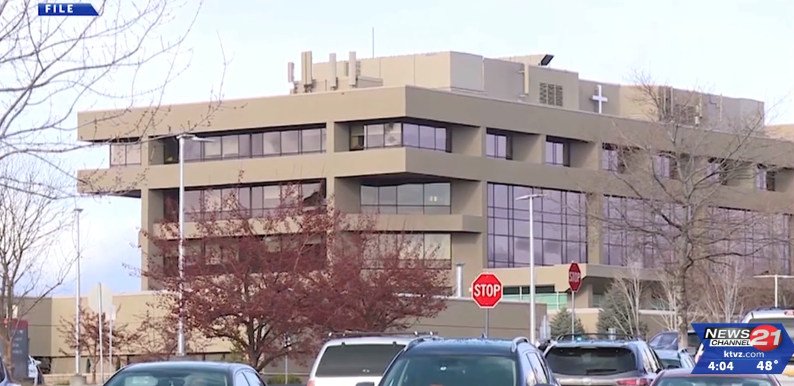St. Charles, other hospitals appeal U.S. judge’s ruling dismissing lawsuit over mental health patients’ civil rights

PORTLAND, Ore. (KTVZ) — Four leading community hospital systems, Legacy Health, Providence Health & Services, PeaceHealth and St. Charles Health System, have appealed U.S. District Court Judge Michael W. Mosman’s ruling to dismiss the health systems’ lawsuit against the state of Oregon.
The lawsuit, first filed in September 2022, alleges the state has violated the civil rights of vulnerable Oregonians with severe mental illness.
The hospital systems’ lawsuit seeks to ensure the Oregon Health Authority fulfills its legal obligation to provide adequate mental health treatment for civilly committed individuals at facilities designed and staffed for this purpose, rather than abandoning them in acute care hospitals.
Judge Mosman dismissed the lawsuit in May, saying the hospitals lacked the standing to bring claims forward on behalf of civilly committed patients, according to The Oregonian
In a statement issued late last week and continuing in full below, officials from the four hospital systems expressed disappointment at the judge's dismissal, stating the case was filed “to advocate for the right of people with mental illness to receive treatment in the most appropriate setting and to hold the state accountable for its legal responsibilities to those individuals.”
The four hospital systems have stated that the Oregon Health Authority is violating civilly committed individuals’ constitutional rights by refusing to provide appropriate care aimed at restoring their freedom. Patients are instead kept for weeks, months or sometimes up to a year in highly restrictive settings in acute care hospitals without a treatment plan designed for long-term mental health care needs.
Leaving civilly committed patients in emergency rooms for long periods of time, instead of giving them access to treatment facilities designed for long-term mental health care also harms the hospitals and the community by limiting community hospitals’ capacity to provide care for other patients experiencing acute mental health crises. This issue is especially critical now as we see a growing mental health crisis in our communities.
At an April 25 hearing, the coalition of hospital systems shared the real-world consequences of the state of Oregon’s failure to fulfill its legal obligations to these vulnerable patients. At Unity Center for Behavioral Health, for example, one civilly committed patient in the last year stayed for 224 days, and half of the civilly committed patients they are caring for had been at Unity Center for more than 30 days.
The other hospital systems shared similar data showing civilly committed patients experiencing stays longer than 120 days at all three hospitals. The acute care inpatient care model is designed to care for patients on average 7 to 10 days.
“Acute care hospitals are simply not designed to provide long-term care,” said Melissa Eckstein, President of Unity Center for Behavioral Health. “These patients should be in specialized long-term care facilities, such as secure residential treatment facilities or the Oregon State Hospital, where they receive levels of care designed for step-down and long-term treatment care needs.”
Lawsuit Background
Under Oregon law, individuals who are a danger to themselves or others may be civilly committed by the state for involuntary treatment for up to 180 days. Generally, when a patient is civilly committed, they do not have an appropriate level of agency to adequately participate in necessary treatment. More than 500 individuals with severe mental illnesses are civilly committed to the Oregon Health Authority for treatment each year.
Acute care hospitals are often the first stop for many patients who require urgent medical care and short-term mental health stabilization. Once that is achieved, the state is legally required to place these individuals in facilities that specialize in long-term treatment, such as secure residential treatment facilities or the Oregon State Hospital. These facilities can give patients the appropriate and necessary care to enable them to regain their liberty.
Rather than transferring civilly committed patients to an appropriate long-term treatment facility, the state abandons them for weeks or months in community hospitals. Community hospitals are the middle-ground for patients needing intense support but are able to participate in their care and treatment. Community hospitals are not appropriate settings for long-term psychiatric care.
The behavioral health units in community hospitals are intended to provide short-term, high-acuity care where patients in mental health crisis can be rapidly evaluated, stabilized, and discharged within days to the next appropriate level of care. When civilly committed patients are occupying space in a community hospital, they are taking up needed services for individuals experiencing an immediate crisis-level mental health episode.
